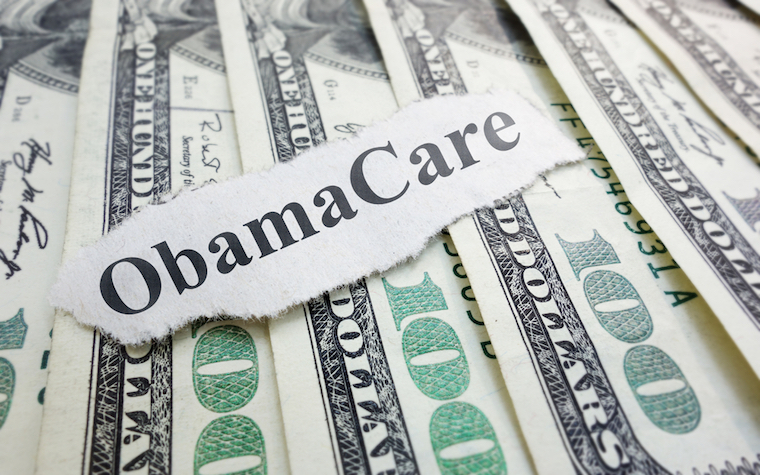
Obamacare lost more than 1.1 million enrollees during the last half of 2015 and the reason is fairly straightforward, according to Brian Blase, senior research fellow at George Mason University’s Mercatus Center.
“Enrollment is much lower than expected because buying exchange plans generally makes younger and healthier people worse off than remaining uninsured,” Blase told Patient Daily News.
On March 11, the U.S. Department of Health and Human Services (HHS) released 2015 end-of-the-year exchange data, which show exchange enrollment throughout the year decreased 25 percent from the number of people who selected a plan at the end of open enrollment.
But the more striking number from the HHS data, Blase said, is actually the decline in exchange enrollment during the last six months of 2015 -- totaling roughly 1.13 million people.
“People realize the plans are not that good and there are features that can be gamed,” he said.
Blase focuses on health care policy with the Spending and Budget Initiative at the Mercatus Center.
One such example under Obamacare -- also known as the Affordable Care Act (ACA) -- is a provision allowing most enrollees to remain covered for 90 days even if they fail to pay premiums, he said.
Another reason for the steep attrition is that people earning above 200 percent of the federal poverty line -- about $23,500 annually for a single person -- face extremely high deductibles if they don’t quality for government assistance to significantly reduce them, he said.
“The data also indicates that the individual mandate has not been effective at boosting enrollment to stabilize exchange risk pools,” Blase said.
Previously, Blase was with the Senate Republican Policy Committee where he served as a health care policy analyst.
He explained that exchange risk pools contain a disproportionate number of older and less-healthy people. Because of the ACA’s regulations and price controls, health insurance providers must enroll a large number of younger and healthier people to offset losses incurred with these older and sicker enrollees, he said, but during open enrollment too few healthier, young folks are joining the exchanges.
There is also an increasing risk that the individual market is becoming a giant high-risk pool for those just above the poverty line because of the ACA, Blase said.
Together, all of these situations threaten the future of the ACA.
“Many of the ACA’s provisions need to be changed so that plans are allowed that appeal to those who don’t qualify for large subsidies,” Blase said.
Another interesting takeaway Blase pointed out was that the federal government removed 501,000 people from coverage in 2015 in the 37 states using HealthCare.gov because they failed to produce “sufficient documentation of their citizenship or immigration status,” according to HHS.
Blase said a comparable number is not available for the states with their own exchanges.